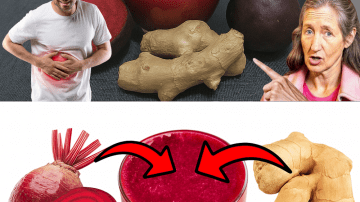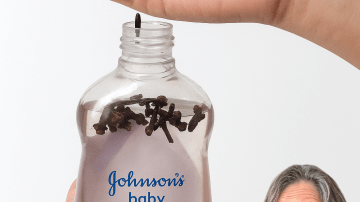Imagine a plant so commonplace, so often dismissed as a mere weed, yet its hidden essence was once valued so highly it earned the nickname “poor man’s opium.” We’re talking about Wild Lettuce (Lactuca virosa), and the secret isn’t in its leaves or seeds, but in the milky, white sap that oozes from its broken stem. This potent substance, known as Lactucarium, holds a centuries-old legacy as one of nature’s most effective, non-narcotic aids for pain relief and deep relaxation.
Most people walk right past this tall, spiky plant, completely unaware that it hides a botanical treasure chest. While it does not contain true opiates, traditional healers and herbalists have long prized Lactucarium for its remarkable mild sedative and analgesic properties. Its effectiveness has made it a fascination in both ancient remedy books and modern self-care circles.
If you are one of the millions seeking a natural, plant-based alternative to manage minor aches, soothe anxiety, or finally achieve a restful night’s sleep, your search may end here. We are diving deep into the fascinating world of Wild Lettuce sap, unveiling its extraordinary benefits, providing the crucial, step-by-step methods for safely collecting this “liquid silver,” and outlining the traditional uses that have kept this secret alive for generations. Prepare to be captivated by the root of this humble plant’s power, and discover why this “weed” deserves your full, undivided attention.

🔎 WHAT IS LACTUCARIUM? THE SAP’S HISTORICAL AND CHEMICAL SIGNIFICANCE
The milky exudate of the Wild Lettuce plant, Lactucarium, is a complex mixture of sesquiterpene lactones, including the primary active compounds lactucin and lactucopicrin. These two compounds are primarily responsible for the plant’s well-documented physiological effects.
Historically, Lactucarium was actually codified in the United States Pharmacopeia in the 19th century as a mild substitute for opium. While its effects are far gentler and it does not carry the addictive properties of opiates, its traditional use for soothing discomfort gave rise to its famous—and perhaps slightly sensationalized—nickname, “opium lettuce.” This history underscores its proven efficacy as a natural aid for tension and pain.
🔬 THE SCIENCE BEHIND THE CALM
The compounds lactucin and lactucopicrin are believed to act on the central nervous system, particularly targeting the sensory nerve endings to produce their desired effects.
- Analgesic Action: They are thought to inhibit pain signaling pathways, helping to dampen the perception of minor aches and pains—from routine headaches to muscle soreness.
- Sedative Properties: These compounds also appear to have a direct, mild sedative effect, promoting calmness and helping to ease the mental and physical tension that often precedes sleep problems.
😴 THE CORE BENEFITS: WHY HERBALISTS VALUE WILD LETTUCE SAP
Lactucarium has earned its esteemed place in herbal remedies by offering several core benefits focused on easing common physical and mental discomforts.
1. 🕊️ POWERFUL NATURAL RELAXATION AND SLEEP AID
For those who struggle with “mind racing” at night or mild insomnia, the mild sedative properties of the sap can be revolutionary.
- Promotes Deeper Rest: The key is the ability of the sap to gently soothe the nervous system, helping the body shift into a relaxed state conducive to sleep without the grogginess associated with commercial sleep aids.
- Soothes Anxiety: It can help temper feelings of tension and nervousness, making it easier to unwind after a stressful day.
2. 🤕 TRADITIONAL PAIN MANAGEMENT
The most celebrated historical use of Lactucarium is its potential to address discomfort naturally.
- Minor Aches and Headaches: It is traditionally used to provide relief from common headaches, menstrual cramps, and general muscle aches—offering a simple, plant-based path away from discomfort.
- Muscle Tension Relief: By inducing a mild state of relaxation, it also helps to release physical tension held in the muscles, which can often be a source of chronic, low-level pain.
3. 🌬️ COUGH AND RESPIRATORY SUPPORT
Historically, the sap was valued for more than just pain; it was also used to address persistent respiratory issues.
- Cough Suppression: In small doses, it has been used to help calm a persistent, dry cough, especially one that disrupts sleep. This anti-spasmodic action on the lungs is another reason it was incorporated into various traditional syrups.
🔪 THE HARVEST: HOW TO SAFELY COLLECT AND PROCESS LACTUCARIUM
Collecting this valuable sap requires precision and respect for the plant. The most potent form is the dried resin.
1. Identifying Your Plant
- Location: Look for mature plants growing in sunny areas, disturbed soil, or along roadsides (though avoid heavily polluted areas).
- Appearance: Wild lettuce is tall (up to 6 feet), with blue-green, spiky leaves.
- The Test: Break a leaf or the stem tip; it must immediately weep the thick, milky white sap. If the sap is clear, it is not the right plant.
2. The Collection Process
- Timing: The best time to collect is usually when the plant is mature and just before or during its flowering stage.
- Initial Cut: Use a clean, sharp knife to cut the main stem near the base. The sap will immediately start to ooze.
- Scraping and Repetition: Gently scrape the oozing sap onto a clean glass plate or collection vessel using a small, sharp utensil or a spoon. Once the initial flow slows, make another small cut slightly higher up the stem to encourage more flow. Repeat this process up the stem and side branches.
- Drying and Storage: Allow the collected milky sap to sit in a dry, dark place. As the moisture evaporates, it will slowly dry and darken into a brittle, brownish, resinous material—this is the concentrated Lactucarium. Store this final dried resin in a small, airtight, opaque container.

🧪 TRADITIONAL WAYS TO UTILIZE WILD LETTUCE SAP
Due to its high concentration, the dried sap is rarely consumed directly. It is typically prepared into a diluted form.
A. THE POTENT TINCTURE (MOST COMMON USE)
The tincture method is favored for its long shelf life and ease of consistent, measured dosing.
- Preparation: Combine the dried Lactucarium resin with a high-proof alcohol (like food-grade vodka or brandy) in a glass jar. The ratio determines the potency, but a general starting point is 1 part sap to 4 parts alcohol.
- Infusion: Let the mixture sit for 2–4 weeks in a dark place, shaking it gently every few days to encourage dissolution.
- Dosing: Strain the liquid and store it in a dropper bottle. Begin with a very small dose, such as 1–2 drops diluted in water or juice, and increase only gradually and cautiously, if needed, until the desired calming effect is felt.
B. EXTERNAL APPLICATION (FOR SORE MUSCLES)
The analgesic properties can also be utilized topically for localized relief.
- Method: Grind a small piece of the dried sap and mix it thoroughly into a carrier oil (like coconut, olive, or almond oil) or a simple natural salve base.
- Use: Gently massage the infused oil directly onto sore muscles, stiff joints, or areas of tension.
- Caution: Never apply this preparation to broken or irritated skin.
C. THE LEAF DECOCTION (FOR MILDER EFFECTS)
If you desire only a very mild relaxing effect and want to avoid the potency of the pure sap, the leaves offer a safer alternative.
- Preparation: Steep 1–2 teaspoons of dried wild lettuce leaves in hot water for 10–15 minutes.
- Use: Drink this mild tea before bedtime for gentle relaxation and to aid in unwinding.
🛑 CRITICAL SAFETY AND RESPONSIBILITY WARNING
While Wild Lettuce has been used safely for centuries, its potency demands extreme respect and caution. The information provided here is strictly for historical and educational purposes and is not medical advice.
- Professional Consultation is Required: You must consult a qualified healthcare professional, doctor, or clinical herbalist before attempting to use Wild Lettuce sap or any derived product, especially if you have pre-existing health conditions (liver issues, heart problems), are taking any medications (particularly sedatives or pain relievers), or are pregnant or breastfeeding.
- Dosage is EVERYTHING: Overuse or improper preparation of Lactucarium can lead to serious adverse effects, including nausea, dizziness, anxiety, and vomiting. Start low, go slow, and never exceed recommended dosages.
- Purity: Ensure the plant is correctly identified and harvested from clean, unpolluted areas.
The true value of Wild Lettuce sap lies not just in its power to soothe, but in the knowledge that nature holds these incredible, often overlooked, secrets. Approaching this plant with curiosity, knowledge, and above all, caution, can unlock a fascinating new dimension to your holistic wellness journey.
Would you like to learn more about safe herbal extraction techniques, such as making a glycerite (alcohol-free tincture)?






